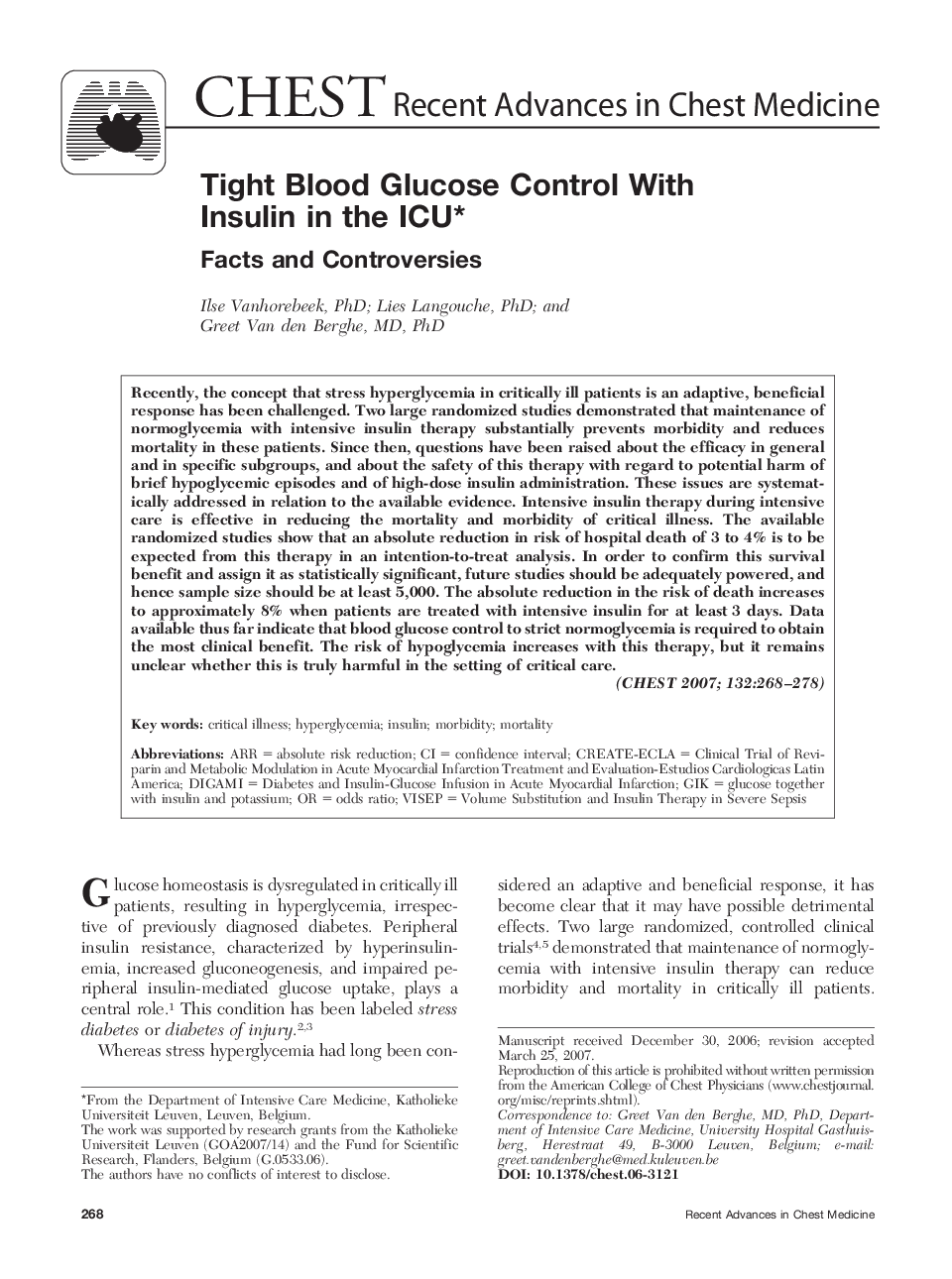| Article ID | Journal | Published Year | Pages | File Type |
|---|---|---|---|---|
| 2906460 | Chest | 2007 | 11 Pages |
Recently, the concept that stress hyperglycemia in critically ill patients is an adaptive, beneficial response has been challenged. Two large randomized studies demonstrated that maintenance of normoglycemia with intensive insulin therapy substantially prevents morbidity and reduces mortality in these patients. Since then, questions have been raised about the efficacy in general and in specific subgroups, and about the safety of this therapy with regard to potential harm of brief hypoglycemic episodes and of high-dose insulin administration. These issues are systematically addressed in relation to the available evidence. Intensive insulin therapy during intensive care is effective in reducing the mortality and morbidity of critical illness. The available randomized studies show that an absolute reduction in risk of hospital death of 3 to 4% is to be expected from this therapy in an intention-to-treat analysis. In order to confirm this survival benefit and assign it as statistically significant, future studies should be adequately powered, and hence sample size should be at least 5,000. The absolute reduction in the risk of death increases to approximately 8% when patients are treated with intensive insulin for at least 3 days. Data available thus far indicate that blood glucose control to strict normoglycemia is required to obtain the most clinical benefit. The risk of hypoglycemia increases with this therapy, but it remains unclear whether this is truly harmful in the setting of critical care.
